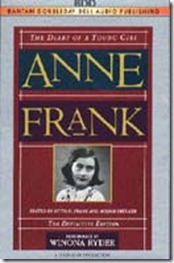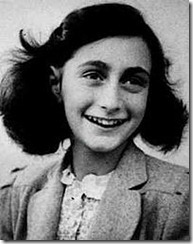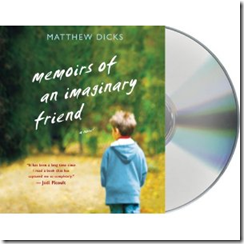My advice: Listen to The Diary of Anne Frank on a 1995 Sony Walkman
/The first time I read The Diary of Anne Frank, I listened to the audiobook on a Sony Walkman. It was 1995, and the recording was on cassette tape. This was by far the best way to read Anne Frank’s diary for the first time.
I was raking leaves on my front lawn. It was late afternoon. The October shadows were long and thin. The air was cool.
It was a moment that I will never forget.
In fact, it was one of the most profound and moving experiences that I have ever had with a book. I finished listening to a diary entry in which Frank talks about the struggle between her interior self and her public self.
“…when everybody starts hovering over me, I get cross, then sad, and finally end up turning my heart inside out, the bad part on the outside and the good part on the inside, and keep trying to find a way to become what I'd like to be and what I could be if . . . if only there were no other people in the world.
Then there was no more.
Just silence.
At first I thought the reels had jammed, an all-too-common occurrence in the days of cassette tapes, but when I looked into the tiny window of the Walkman, I saw that the reels were spinning and the tape was coming to an end.
I pressed the stop button and extracted the cassette in order to turn it over. I saw the letter B on the tape.
I had already played both sides of the cassette.
Confused, I walked over to the case of cassette tapes on the front stoop to get the next one and discovered that there were no more. As I had thought, this was the last cassette.
That was it. As swiftly and unexpectedly as Frank and her family had been taken from their annex by the Nazis, The Diary of Anne Frank had come to an end.
I couldn’t believe it.
It’s not as if I was unaware of Anne Frank’s fate. I knew of her tragic death in the concentration camps.
It’s not as if I was expecting her diary to end on a high note. But the suddenness of its end, without a warning of any kind, literally stopped me in my tracks.
Had I been reading the book instead of listening to it, I would’ve had a measure of the remaining pages and been better prepared for the end. Unlike Anne and her family, I would’ve seen the end coming.
Had I been listening to the book on my iPhone, as I listen to audiobooks today, I would’ve been aware of the time remaining on the recording and not been so confused or surprised when it came to an end.
But because the technology did not allow for a warning, the ending was one of the most heart-wrenching moments in all of literature for me. Anne Frank was taken from me with an abruptness commensurate with her arrest. One day she was writing her diary, and the next day she was on a train that would eventually lead her to her death, never to write a single word again.
I do not cry easily. Even when I feel the need to cry, I tend to suppress my emotions Swallow them whole. Standing in my front yard that day on a carpet of orange and red leaves, I did not cry upon realizing that I had reached the end of Anne Frank’s diary, and in a way, the end of Anne Frank’s life.
I wept.
I wept, knowing that Anne Frank had never been given the chance to tell a single story. Tear streamed down my cheeks with the sudden awareness that Anne Frank went to her grave never knowing how many millions of people would ultimately read her diary and cherish every word.
I may have wept for Anne Frank regardless of how I consumed her diary for the first time, but I suspect that the abrupt ending contributed greatly to my emotional response. Anne Frank spent two years hiding with her family in their annex, and in that time, she wrote a diary that will be read for centuries. She had her whole life stretched out in front of her, and whether she believed it or not, it was rich with possibility. Despite her doubts, she was a gifted writer even at the age of fifteen. Then suddenly, without warning, her writing came to the end at the hands of evil men. She was separated from her family, shipped to a concentration camp, and was dead six months later.
Someday I will play the audiobook of The Diary of Anne Frank for my children. My plan is to play it in the car, in the midst of a long, cross-country road trip. With any luck, they won’t see the end coming any more than I did on that fall afternoon.
Some books are better consumed, at least the first time, in audio form, and preferably using technology from the mid-1990s.



